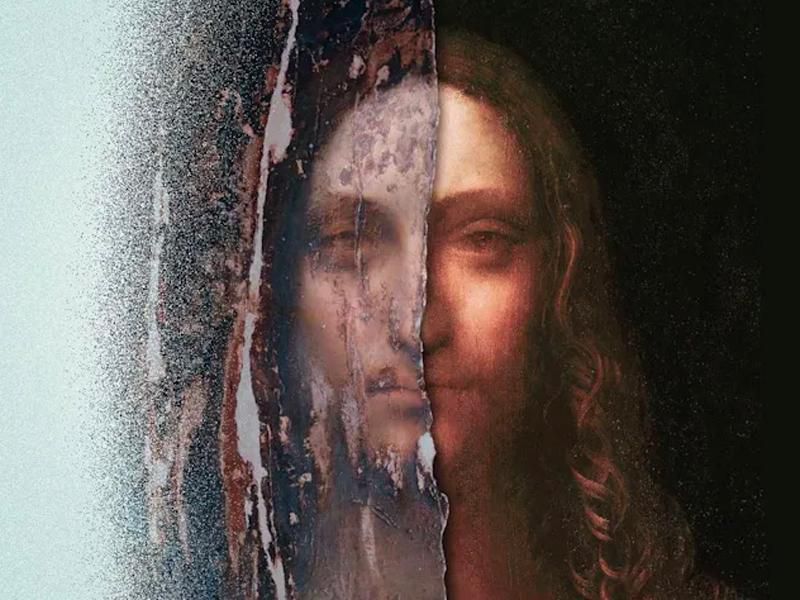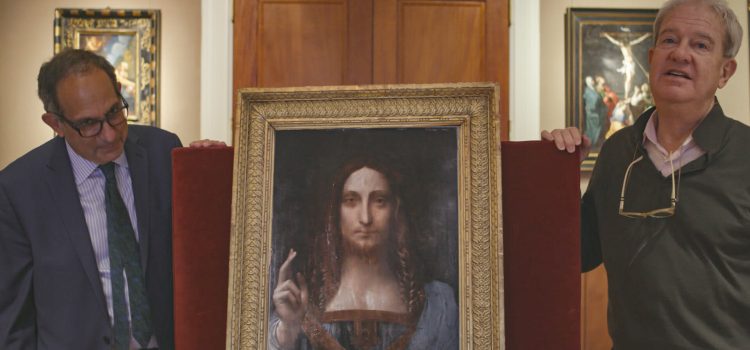By Alex McPherson
Director Andreas Koefoed’s new film, “The Lost Leonardo,” thrills, chills, and raises salient points about the essence of art itself.
This documentary chronicles the tumultuous happenings surrounding an infamous portrait of Jesus titled the “Salvator Mundi,” which some people believe was painted by Leonardo Da Vinci. An idiosyncratic art buyer named Alexander Parish purchases the painting at a sketchy New Orleans auction in 2005 and shows it to a prominent historian and restorer named Dianne Modestini.
She ends up restoring a large portion of the piece, but determines — based on a barely perceptible stylistic choice — that it’s a work by Da Vinci or, at the very least, a student of his. Thus begins a globe-trotting mess of a story, where disagreements about authenticity abound, reputations are tarnished, and influential figures use the Salvator Mundi to further their dogged pursuit of money and power.
As the tale unfolds, “The Lost Leonardo” crawls under your skin, becoming ever-troubling as we get an inside glimpse into the shadier corners of the art world. Presented in a clear, carefully researched fashion that’s cut together like a bleak investigative thriller, Koefoed successfully renders initially dry subject matter into something altogether fascinating. He lets the material’s head-spinning happenings fuel the pacing, yet allows key players to retain their human complexities.
Featuring interviews with historians, critics, dealers, curators, reporters, and CIA agents, “The Lost Leonardo” does a praiseworthy job at presenting varying perspectives in easily digestible fashion. As outsiders, we can never be fully sure of some of the interviewees’ intentions — do they honestly believe that they’ve stumbled upon a hidden masterpiece, or are they just continuing a narrative to satisfy themselves and their bank accounts? Doubt and suspicion permeate the film, leading to several provocative moments when their words are juxtaposed against each other. Koefoed, however, doesn’t fully take one side or the other amid the chaos.
The cast of characters aren’t all the most transfixing of personalities, but there’s still enough to ensure plenty of surprises through to the disquieting conclusion. Memorable presences include Modestini, passionate about preserving art and displaying it for the public to see, and critic Jerry Saltz, who cuts through the increasingly convoluted plot to provide bursts of incisive, irreverent commentary that underline the ridiculousness of the situation.
When you strip away the faux decorum and pretenses of professionalism, after all, the whole shebang reveals itself to be centered around ego and perceptions of superiority. As the painting is repeatedly bought and sold by various parties, what constitutes the actual “truth” of its origins gets distorted. Power-hungry forces get their hands on the Salvator Mundi and bestow it worth that draws international attention.
“The Lost Leonardo” weaves a cautionary tale of how true appreciation of art can become morphed by greed, casting aside its inherent craftsmanship in favor of purely monetary value. What begins rather modestly evolves into an ambitious, wholly relevant story that paints a picture of the lengths some will go to maintain falsehoods for personal gain. Indeed, “The Lost Leonardo” urges viewers to look more critically at artwork of all kinds and to recognize the potentially corrupt machinations behind closed doors — supporting those who maintain their integrity and bravery in the face of tangible risks.
Although the mystery loses some steam in its middle section involving discussion of the “free port” system and a legal battle with a Russian oligarch, “The Lost Leonardo” builds a haunting crescendo by the end credits. Koefoed’s film eschews simplicity in showcasing a real-life adventure that features patterns of behavior prevalent throughout human history. It remains one of the most enlightening films of 2021 so far, and a doc that both art connoisseurs and novices alike should give a look.

“The Lost Leonardo” is a 2021 documentary that premiered at the Tribeca Film Festival in June. Directed by Andreas Koefoed, the movie runs 1 hour and 36 minutes. It is rated PG-13 for nude art images. Alex’s Grade: A-
Alex McPherson is an unabashed pop culture nerd and a member of the St. Louis Film Critics Association.

